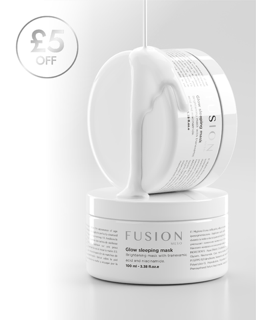Lactobionic acid
- marielarkin15
- Nov 4, 2022
- 2 min read
From mandelic to salicylic, exfoliating acids are huge in skincare right now. Promising brighter, smoother & clearer skin, they work on both a surface and deeper level to lift away dull, dead skin cells, unclog pores & minimise hyperpigmentation. It's no wonder the multitasking ingredients are popular among skin experts and skincare obsessives alike. Now, there's a new exfoliating acid on the block & skincare brands are slowly jumping on board, formulating all manner of products from masks to leave-on toners with the buzzy, multitasking component. The ingredient in question? Lactobionic acid. What is lactobionic acid in skincare? Lactobionic acid (otherwise known as LA) is a compound formed naturally in the human body by the oxidation of lactose. In recent years, it has gained a lot of recognition in the cosmetic industry & among dermatologists, mostly for its antioxidant properties, meaning it protects the skin from the environment, including pollution which can make the skin look dull. What does lactobionic acid do for the skin? Providing antioxidant protection isn't the only thing lactobionic acid does for the skin. In fact, it's a true multitasker. It moisturises the skin, helps to exfoliate dead cells & even reduces fine lines & scars. At the same time – because of its antioxidant qualities – lactobionic acid can improve the tone, radiation & elasticity of most skin types, providing the skin with a gleam effect that is highly sought-after by most individuals. In other words, it's the ultimate glow-booster. What is the difference between lactobionic acid & other skincare acids? Lactobionic acid is a polyhydroxy acid (or PHA) which means it has large molecules & doesn't penetrate the skin as deeply as other acids. As a result, it doesn't irritate the skin as much as other acids can do, such as glycolic acid, for instance, The fact that lactobionic acid remains & acts on the surface of the skin also adds to its moisturising and exfoliating qualities. Which skin types will benefit from lactobionic acid & which ones may not tolerate it as well? Because it doesn't penetrate the skin in an aggressive way, lactobionic acid can be suitable for sensitive skin types, which is not always the case with other acids, especially glycolic acid. Most skin types will benefit from a skin regime that includes lactobionic acid, however people with very sensitive skin may need to use products with a very low % of LA and only apply a very thin layer. This includes people with very dry skin.
This is a key ingredient in Ekseption skincare. For more information
www.pandorasboxbeauty.com/shop




Comments